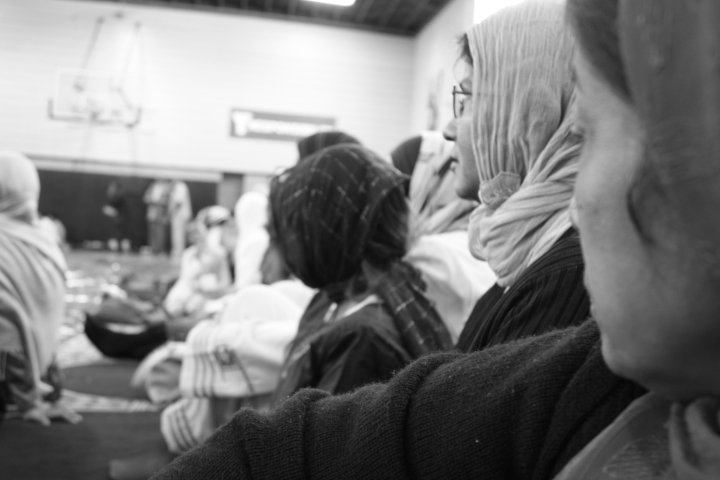 |
| Nyunt Than holding a Burma Pro Democracy flag to be flown at the City of Berkeley's Annual Burma Day Flag raising Ceremony |
Nyunt Than, the current head of the Burmese American Democratic Alliance (a non-profit organization in the Bay Area that works on democracy and human rights issues in Burma) is a Burmese leader whose activism going back to his days as a student during the 1988 pro-democracy uprisings. At the time, Nyunt Than* had just graduated from Rangoon Institute of Technology when the military regime shot and killed three student protestors from behind. “This act exposed the regime for what it was” he explained. “Now annually we commemorate that day, March 13, as Burma Human Rights day.”
“The protests in 1988 were initially led by students, but soon spread across the country as civilians, from children to housewives and doctors, joined in to rise up against the military dictatorship that had been running the country into the ground since 1962”. Despite having a broken leg due to a recent car accident, Nyunt Than took to the streets in resistance. The protests ended up leaving thousands dead as the regime brutally suppressed the movement. After the uprising ended, there were immediate crackdowns and arrests of students. Many students escaped towards the Burmese border into countries like Thailand. Nyunt Than stayed behind, however, due to his disability and a desire to finish up his graduate degree.
 |
| commemorating the 1988 pro democracy uprisings in Burma |
During this uprising, Daw Aung San Suu Kyi, Nobel laureate and the daughter of the founder of Burmese Independence, Aung San, became a prominent opposition leader for democracy, creating the National League for Democracy party. In 1990, the military-backed Burmese regime lost the national election to Aung San Suu Kyi (or ASSK for short) and her democratic party. “During that election, I went back to my village and that’s where I witnessed how much people were hoping for change. Everybody came out and voted for her; they thought there was going to be real change. The next day, the radio announced the winners and I thought," Nyunt says with a sardonic laugh, “what can these people [the regime] do now? I thought that things were going to be different, but I was wrong. The next day they [the regime] outright denied Aung Saan Suu Kyi power, which eventually led to her arrest, and many student leaders got arrested again and again.” It was then that the Burmese regime overthrew the results of the general election and arrested ASSK, placing her under house arrest and jailing other democratic leaders who had won seats in the parliament. Some of whom would later died in prison.
Upon finishing his masters degree in 1991, Nyunt Than was quick to leave Burma. “The regime lies, they kill and will do anything to keep themselves in power, I intensely disagreed about what is going on in Burma, that’s why I decide that I will never work for this regime, as soon as I finished my education I left towards Singapore and lived there for 4 years. Activism in Singapore was very difficult because they are close to the Burmese regime”. After four years, Nyunt was able to migrate to the United States. Once in the US, Nyunt felt that he was could work to help his home country. He became involved in protest activities and soon helped found BADA and became the Secretary of the organization.
The oppression increased after Nyunt Than left. “The world was on edge when the regime brutally cracked down on the 2007 peaceful protests by Buddhist monks. In May of 2008, a massive cyclone Nargis hit lower delta area of Burma and killed nearly 200,000. With bodies scattered all over the region and millions of survivors looking for land, food and water to survive, the regime, instead of helping the people, moved forces within the country to come to the polls and approve a sham constitution."
 |
| Holding up a 2001 photo of himself protesting in the book "Free Burma", the protest was against Unocal Corporation's partnership with the Burmese regime |
Nyunt Than continues,“[In Burma, people struggle to live hand to month daily and have nothing much to eat due to the scarcity of food. They don’t even have enough electricity for their basic needs in the cities. Burma is exporting the largest amount of natural gas in the region to power factories in neighboring countries. The regime gets millions of dollars while the people struggle. There is gas pipeline to Thailand and one of its operators is California’s Chevron corporation. China is building a huge gas pipe line from Burma to China’s Yunnan Province. We are currently in the mists of protests against the Chinese dam on our the vital Irrawaddy River* to produce electricity for China. Burma is about the size of Texas and half of it used to be covered by forests. Now forests are no longer there and a few years back the country faced the severest drought seen in Burma's history due to the lack of trees."













